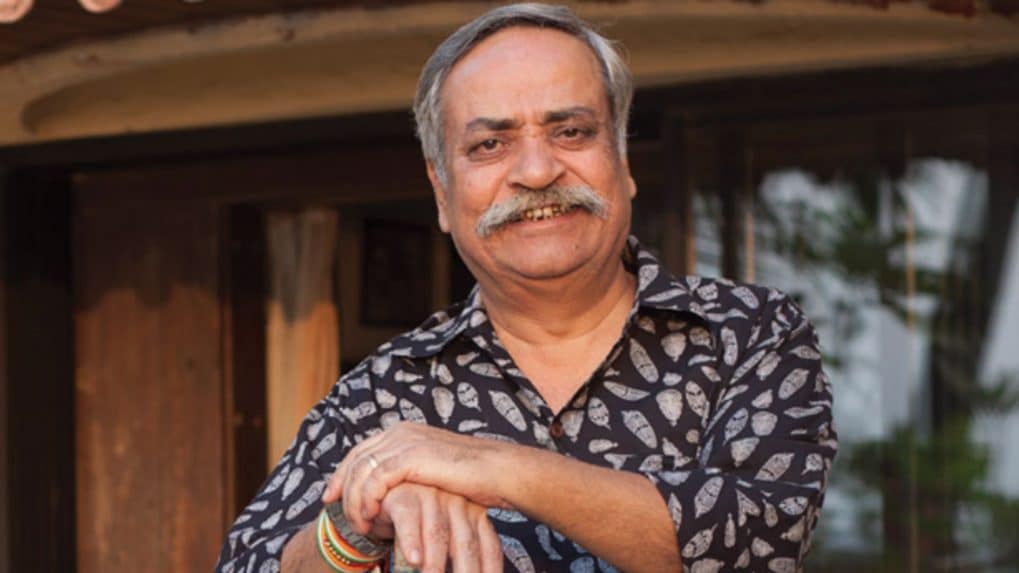How it Works
WPP, Havas, Omnicom: Are advertising’s biggest holdcos recasting agencies as AI Operating Systems?

The sun rose heavy and hesitant over Mumbai on Saturday — the kind that doesn’t dazzle, only glows faintly, as if the city itself were in mourning. At the Shivaji Park Crematorium in Dadar, smoke curled gently into the mid-morning sky, carrying with it the scent of sandalwood, salt, and sorrow. Beneath that pale light, India’s advertising fraternity — its brightest minds and most beloved voices — gathered to bid farewell to the man who taught the country how to speak to itself: Piyush Pandey (1955–2025).
As family and friends stood close, the air filled with a sound that transcended grief — “Mile Sur Mera Tumhara,” sung softly, then louder, by those who had come to say goodbye. The anthem — one of Pandey’s most iconic creative legacies — was no longer just a film. It had become a prayer, a promise, and a farewell rolled into one.
Standing together, his sisters, their voices breaking between tears, chanted, “Mera Bhaiya Mahan… Piyush Pandey Amar Rahe!” The words carried across the gathering, echoing through the crowd of hundreds — his students, colleagues, and clients, many of whom had come not just as professionals but as family. His last rites were performed at 12pm on Saturday.
“This is not just the passing of an adman,” said Josy Paul, Chairman and Chief Creative Officer of BBDO India, his voice trembling. “It’s like India has lost its voice — the one that spoke straight from the heart, that could make you laugh, cry, and believe, all in thirty seconds.”
The crowd was a reflection of Pandey’s life — eclectic, warm, and deeply human. Among those present were Amitabh Bachchan and Abhishek Bachchan, Harit Nagpal of Tata Play, Lulu Raghavan of Landor, Rajiv Bajaj of Bajaj Auto, Shashi Sinha of IPG Mediabrands, Ajit Varghese of Madison World, Ajay Mehta of WPP Media, Harsha Bhogle, Amit Syngle of Asian Paints, Sudhir Sitapati of Godrej Consumer Products, Rana Barua of Havas, and Dheeraj Sinha of FCB India.
Read More:"Gen Z are not idiots - they love great stories too": Piyush Pandey’s final lesson on storytelling
Ogilvy India’s leadership stood in silence, shoulders touching, eyes moist. They had lost not just their creative captain but their compass — the man who, for over four decades, turned ordinary ideas into cultural milestones.
Pandey’s family — including filmmaker Prasoon Pandey, singer Ila Arun, and his sisters — stood united in quiet dignity. Their grief was private, yet it belonged to an entire generation that had grown up with his words.
For over forty years, Piyush Pandey wasn’t selling products — he was selling feelings. His campaigns spoke to the India that lived in small towns and big hearts. He made millions hum “Har Ghar Kuch Kehta Hai” long after the commercial ended, made them chuckle with “Fevicol ka jod hai, tutega nahi,” and filled them with pride with “Mile Sur Mera Tumhara.”
“He taught us that advertising is not about slogans,” said a leading brand executive. “It’s about empathy — about seeing the world through the eyes of the people you speak to. That was Piyush’s gift to us all.”
Around the crematorium, friends and former colleagues shared stories quietly — of late nights at the Ogilvy office in Mahim, of laughter that filled the smoke-laced air as Pandey reworked a line until it sang. One of them recalled an oft-repeated piece of advice from him: “Agar kuch accha likhna hai, toh dil se likho.” If you want to write something good, write it from the heart.
That philosophy defined his career. His work — from Cadbury’s Kuch Khaas Hai to People First campaigns for government initiatives — shaped how India thought, dreamed, and even smiled. He turned advertising into a mirror, one that reflected not just aspiration but identity. As memories flowed, a soft murmur rippled through the crowd — a mixture of disbelief and gratitude. “We all owe a part of our creative DNA to him,” said an executive from a leading creative agency. “He made emotion our strategy.”
Pandey’s passing marks the end of an era — the close of a golden chapter in Indian advertising. Yet, as his friends sang “Mile Sur Mera Tumhara,” it felt less like an ending and more like a chorus that would live on.
For those who had worked with him, the anthem captured everything he stood for — unity, empathy, and a shared sense of belonging. When the final chants faded, Mumbai’s breeze carried a strange stillness — the kind that follows after something immense has passed. But in that silence, his legacy whispered through every jingle, every script, every young copywriter who ever dared to dream.
Because Piyush Pandey didn’t just write ads. He wrote the country’s emotional lexicon. From chaiwalas to CEOs, from cricket to Cadbury, his words connected the dots of an India that was always learning to love itself a little more. As the crowd slowly dispersed, one of his colleagues turned to another and said quietly, “He may have left the room, but the echo of his ideas will never stop selling life.”
In the end, Mile Sur Mera Tumhara played once more — softer this time, like a memory returning home. And somewhere in that fading refrain, you could still hear him smiling.
From purpose-driven work and narrative-rich brand films to AI-enabled ideas and creator-led collaborations, the awards reflect the full spectrum of modern creativity.
Read MorePraveen Someshwar, Managing Director and CEO of Diageo India, joins the Grand Jury of the Storyboard18 Awards for Creativity, highlighting the awards’ focus on work that blends cultural relevance with strategic and commercial impact.